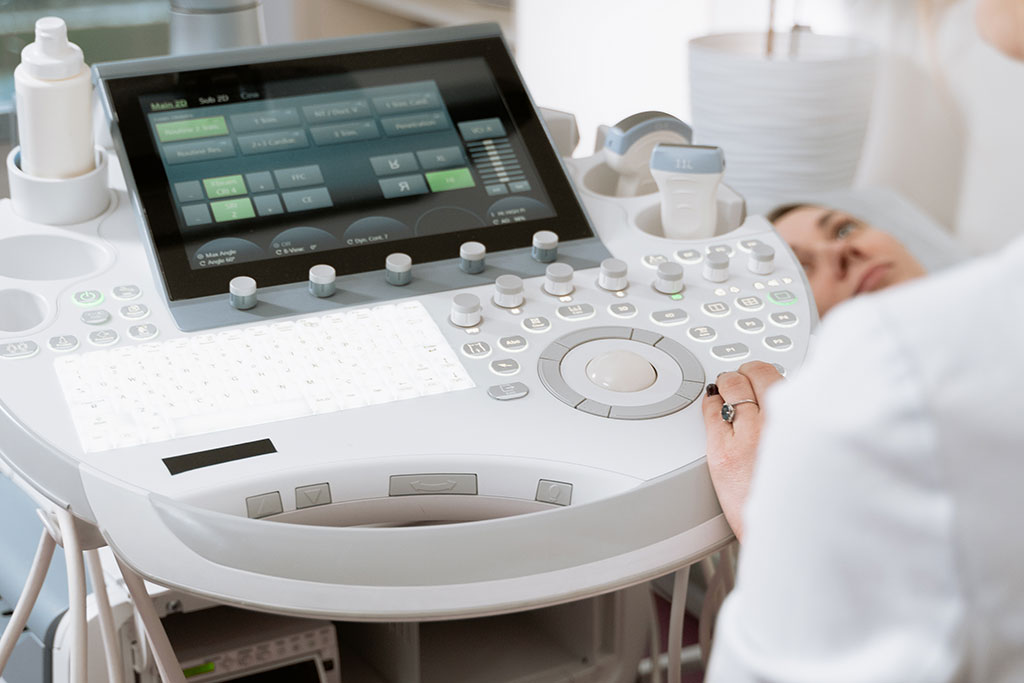MR-Guided Focused Ultrasound Controls Prostate Cancer with Fewer Side Effects
Posted on 16 Jun 2022
When the cancer is confined to the prostate gland, the main treatment options have traditionally included active surveillance (close monitoring), surgery, and radiation. But men who needed surgery or radiation often had persistent side effects, such as urinary and sexual problems, that could reduce quality of life. In recent years, a new treatment strategy known as focal therapy (partial gland ablation) has emerged for prostate cancer considered to be “intermediate risk” - mostly, small tumors confined to one area of the prostate. Now, a landmark clinical trial has demonstrated that an advanced focal therapy approach and less-invasive method known as high-intensity focused ultrasound (HIFU), guided by magnetic resonance imaging (MRI), works well for many patients.
Results from the clinical trial conducted by researchers at Memorial Sloan Kettering Cancer Center (MSK, New York, NY, USA) represent a major step toward having the new HIFU approach become part of widespread prostate cancer treatment. The phase 2 trial looked at a particular type of HIFU treatment, also called MR-guided focused ultrasound (MRgFUS), in men with intermediate-risk cancer. The novel approach effectively controlled the disease in patients and greatly reduced adverse side effects of treatment. This suggests many men with intermediate-risk prostate cancer can avoid surgery, chemotherapy, and radiation.

MRgFUS is an outpatient treatment that takes about two hours. Patients under anesthesia are placed in an MRI machine that covers the lower half of the body. After the machine takes an image of the prostate, the doctors outline the treatment area and deliver the focused ultrasound waves, guided by the MRI. The ultrasound waves come from different directions, intersecting to attack and kill the cancer by heating the cells to more than 158 °F (70 °C).
In the phase 2 clinical trial, 101 men received the novel MRgFUS treatment and then were biopsied six months and 24 months later. There was no intermediate- or higher-risk cancer left in the treated area for 88% of the patients. Based on this data, the FDA in December 2021 granted approval for the technology, called Exablate Prostate, to treat prostate tissue. The FDA also approved an investigator-initiated trial to compare MRgFUS focal therapy to active surveillance and demonstrate a clinical benefit for patients with prostate cancer. Using MRgFUS for intermediate-risk cancers has become possible due to two important developments over the past 15 years. First, there was an acceptance by experts of using active surveillance for low-grade tumors. The second advance was new imaging technology that enabled MRIs to be incorporated into ultrasound treatment.
“We believe this novel treatment strategy will improve the lives of many prostate cancer patients,” said MSK urologic cancer surgeon Behfar Ehdaie who led the phase 2 trial. “To draw a parallel with how breast cancer treatment changed 30 years ago, you could think of focal therapy as a ‘male lumpectomy.’ Instead of removing all the tissue in a breast or prostate, we have learned that it is safe and effective to treat specific areas and greatly reduce the burden on patients.”
“Advancements in prostate cancer over the past two decades have been headlined by successes that have benefited all patients, and now focal therapy provides another exciting area that can move the needle in prostate cancer management,” Dr. Ehdaie added.
Related Links:
MSK














